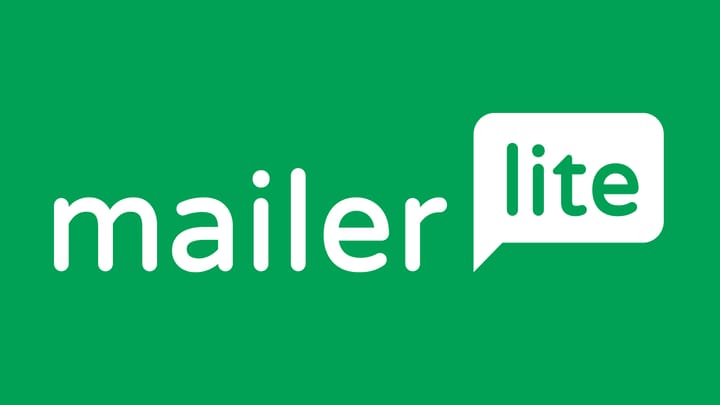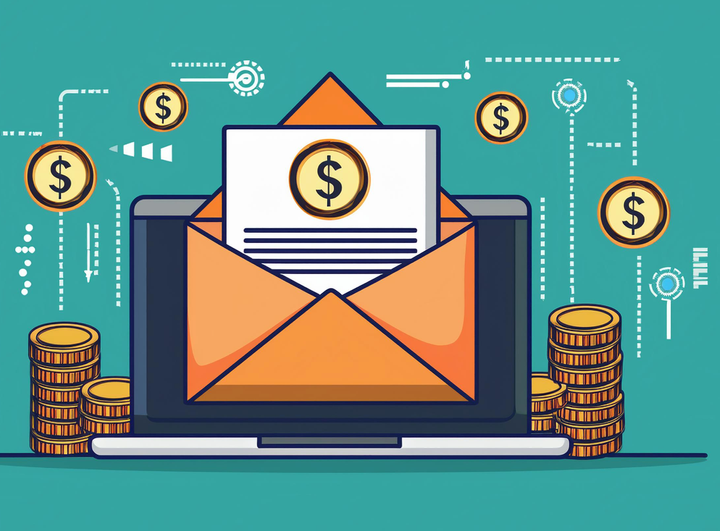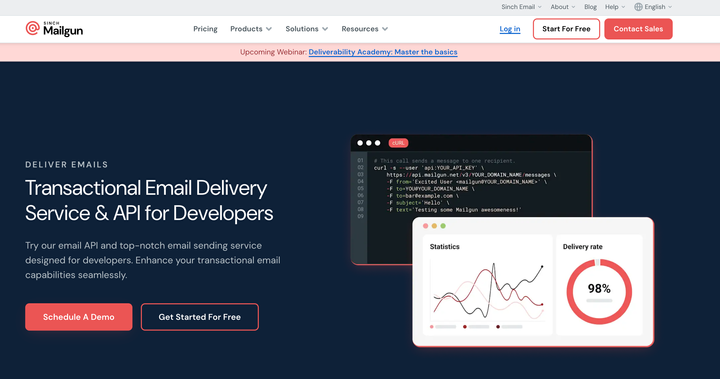GDPR vs CCPA vs Global Privacy: The Compliance Maze International Regulatory Landscape
If you're running email campaigns in 2025, you've probably heard about privacy laws like GDPR and CCPA.

If you're running email campaigns in 2025, you've probably heard about privacy laws like GDPR and CCPA. But here's the thing: there are now privacy regulations in over 170 countries worldwide, and as of 2024, 20 US states have enacted comprehensive privacy laws. For email service providers, this means navigating a complex maze of regulations that can seem overwhelming.
Don't worry. We're going to break this down in simple terms. Think of this as your straightforward guide to understanding what these privacy laws mean for your email marketing and how to stay compliant without losing your mind.
Why Should Email Marketers Care About Privacy Laws?
Privacy laws aren't just legal paperwork you can ignore. They have real teeth. GDPR fines alone have reached approximately €5.65 billion since 2018, with the largest single fine being €1.2 billion imposed on Meta. These laws have "extraterritorial reach," meaning they can apply to your business even if you're not in that jurisdiction.
Here's what matters: if you send emails to people in Europe, California, or many other places, these laws likely apply to you. The good news? Most privacy laws share similar principles, so getting one right often helps with others.
GDPR: The European Approach
The General Data Protection Regulation (GDPR) became effective in 2018 and essentially created the template that many other countries have followed. Think of GDPR as the strictest privacy law. If you comply with GDPR, you're often in good shape elsewhere.
Who Does GDPR Apply To?
GDPR applies if you:
- Send emails to people living in the European Union (EU) or European Economic Area (EEA)
- Process personal data of EU/EEA residents, regardless of where your business is located
This means if you're a US-based company sending newsletters to subscribers in Germany, GDPR applies to you.
Key GDPR Requirements for Email Marketing
Consent Must Be Clear and Specific: You can't use pre-checked boxes or assume silence means consent. People must actively opt-in to receive your emails.
Give People Control: EU residents have the right to know what data you collect, access their data, correct it, delete it, and move it to another service.
Be Transparent: Your privacy policy must clearly explain how you collect and use email data in plain language.
Security Matters: You must implement appropriate security measures to protect personal data.
GDPR Penalties
GDPR fines can reach up to €20 million or 4% of your company's global annual revenue, whichever is higher. The severity depends on the violation, but even smaller companies face substantial penalties relative to their size.
CCPA/CPRA: The California Standard
The California Consumer Privacy Act (CCPA) was California's answer to GDPR, and it was strengthened by the California Privacy Rights Act (CPRA) in 2023. While similar to GDPR in many ways, it has some key differences.
Who Does CCPA Apply To?
CCPA applies to businesses that:
- Have annual revenue over $25 million, OR
- Buy, sell, or share personal information of 100,000+ California residents, OR
- Derive 50% or more of revenue from selling personal information
Key CCPA Requirements for Email Marketing
Right to Know: Californians can ask what personal information you collect and how you use it.
Right to Delete: They can request you delete their personal information.
Right to Opt-Out: If you sell or share personal information, you must provide an easy way for people to opt out.
Right to Correct: People can ask you to fix inaccurate information.
Global Privacy Control: You must honor browser signals that indicate someone doesn't want their data sold or shared.
CCPA Penalties
CCPA violations can result in fines between $2,500 per violation and $7,500 for intentional violations. California's Privacy Protection Agency handles enforcement.
The Growing US Privacy Landscape
Here's where things get complex: as of 2025, 20 US states have comprehensive privacy laws, with more taking effect throughout the year. States like Virginia, Colorado, Connecticut, Utah, and many others have enacted laws that are similar to CCPA but with their own specific requirements.
Notable State Laws Include:
- Virginia Consumer Data Protection Act (VCDPA)
- Colorado Privacy Act (CPA)
- Connecticut Data Privacy Act (CTDPA)
- Texas Data Privacy and Security Act (TDPSA)
- Oregon Consumer Privacy Act (OCPA)
In 2025 alone, eight new state privacy laws are taking effect, adding to the complexity businesses must navigate.
Global Privacy Laws Beyond US and EU
Brazil (LGPD)
Brazil's General Data Protection Law is very similar to GDPR but with somewhat lower penalties – up to 2% of company revenue or 50 million Brazilian reals.
Canada
Canada has federal privacy law (PIPEDA) plus provincial laws. Quebec's Law 25 is particularly strict and in some ways exceeds even GDPR requirements.
Asia-Pacific
- China's PIPL: Strict consent and data localization rules with penalties up to 5% of global turnover
- Japan's APPI: Recently strengthened with EU adequacy recognition
- Singapore's PDPA: Comprehensive privacy protections
Other Key Jurisdictions
- UK-GDPR: Similar to EU GDPR post-Brexit
- South Africa's POPIA: Comprehensive privacy law
- Mexico: Significant privacy law updates
Key Differences: GDPR vs CCPA vs Others
Philosophical Approach
- GDPR: Treats privacy as a fundamental human right
- CCPA: Focuses on consumer protection and transparency
- Other US State Laws: Generally follow the CCPA model with variations
Consent Requirements
GDPR generally requires more explicit consent, especially for email marketing. CCPA allows more flexibility but requires easy opt-out mechanisms.
Penalties
GDPR has the highest potential penalties, but all major privacy laws can impose significant fines relative to business size.

Practical Compliance Strategies for Email Marketers
Universal Best Practices
Data Minimization: Only collect email addresses and information you actually need. Don't ask for data just because you can.
Clear Consent: Use double opt-in for email subscriptions. Make it obvious what people are signing up for.
Easy Opt-Outs: Provide simple unsubscribe mechanisms in every email. Honor opt-out requests quickly.
Transparent Privacy Policies: Write privacy notices in plain language that explain how you use email data.
Security: Implement appropriate security measures to protect subscriber data.
Multi-Jurisdictional Approach
Since privacy laws share similar principles, consider adopting the "highest standard" approach:
- Use GDPR-level consent practices for all subscribers
- Implement universal opt-out mechanisms that work across jurisdictions
- Honor Global Privacy Control browser signals
- Provide comprehensive data subject rights to all users
Technical Implementation
Consent Management: Implement systems that track when and how people consented to receive emails.
Automated Rights Handling: Set up processes to quickly respond to access, deletion, and correction requests.
Data Mapping: Understand exactly what personal data you collect and how it flows through your systems.
Regular Audits: Periodically review your practices to ensure ongoing compliance.
What This Means for Your Email Marketing
The Good News
Most privacy laws don't prohibit email marketing – they just require you to do it responsibly. In fact, building trust through privacy compliance often improves email engagement.
Practical Steps to Take
- Review your sign-up process:: Ensure it clearly explains what emails people will receive
- Audit your data collection: Only collect information you actually need
- Update your privacy policy:: Make sure it covers email marketing practices
- Implement easy unsubscribe:: Make opting out simple and immediate
- Train your team:: Ensure everyone understands privacy requirements
- Document everything:Keep records of consent and privacy practices
Future-Proofing Your Email Program
The privacy landscape will continue evolving. More US states will likely pass privacy laws, and existing laws may be strengthened. By building privacy into your email marketing foundation now, you'll be better prepared for future changes.
Consider privacy compliance not as a burden, but as a competitive advantage. Subscribers are increasingly aware of privacy issues, and demonstrating that you respect their data builds trust and loyalty.
The Bottom Line
Privacy laws are here to stay, and they're expanding globally. While the regulatory landscape seems complex, the core principles are consistent: be transparent about data collection, give people control over their information, and implement appropriate security measures.
For email marketers, this means adopting privacy-conscious practices across all your campaigns. The investment in compliance pays off through increased subscriber trust, better engagement rates, and protection from significant financial penalties.
The key is to view privacy compliance as part of good email marketing practice rather than an obstacle to overcome. When done right, privacy-compliant email marketing builds stronger, more engaged subscriber relationships – and that's good for everyone.




